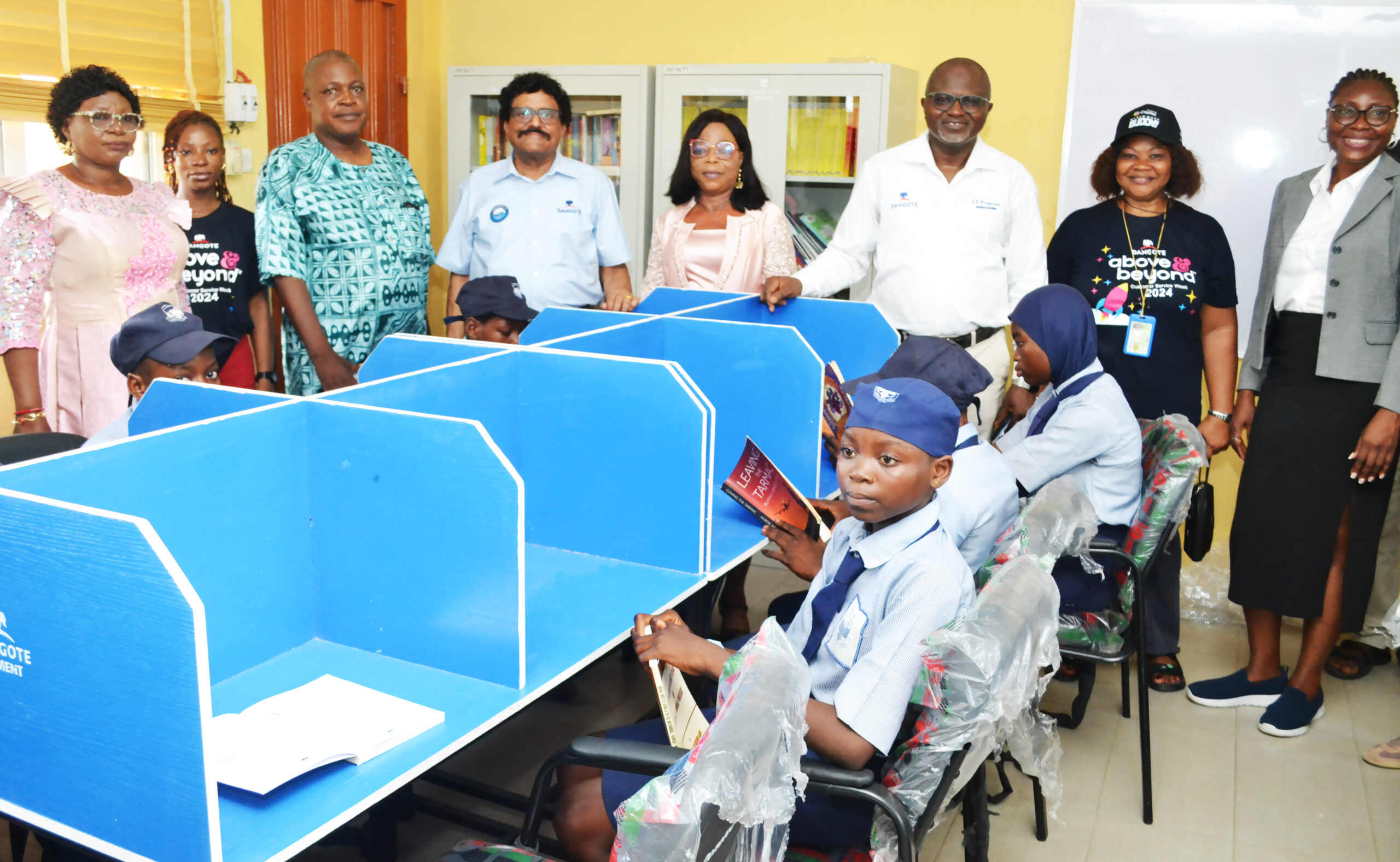Business
Depreciation: ABCON urges CBN to float Naira

The Association of Bureaux Des Change Operators of Nigeria (ABCON) has urged the Central Bank of Nigeria (CBN) to float the Naira to halt its further depreciation.
The President of ABCON, Alhaji Aminu Gwadabe, made the appeal on Saturday in an interview with the News Agency of Nigeria (NAN) in Lagos.
Gwadabe said that the CBN should do all within its powers to undertake a sustained injection of dollar in the market to reverse the loss in the value of the naira at the parallel market.
“It might sound counterintuitive but the way out of the current frenzy is to abolish the official fixed exchange rate and allow the Naira to float.
“CBN should contemporaneously undertake a large-scale dollar intervention in the open market that can inspire confidence in the Naira and checkmate the current tailspin.
“Once there is a significant positive movement, the market will react and, in all probability, spur an avalanche of panic selling and further buoy the Naira,” Gwadabe said.
The financial expert said that the CBN could gradually buy back the Dollars used in its intervention from the open market at a lower exchange rate for a decent profit.
He argued that the the next phase would be to strengthen the Naira in the medium to long-term, adding that both fiscal and monetary policies should be aligned to stimulate the tradable sector.
On CBN’s Monetary Policy Rate (MPR) at 13 per cent, Gwadabe said that the adjusted rate would stifle growth.
He said efforts targeted at reducing Inflation in an underperforming economy should focus on stimulating the supply side.
“Increasing the MPR contracts the supply side, it is the wrong prescription.
“Let’s not copy the Americans who target inflation with FED rates to curb money supply; their factors of production have been fully mobilized, ours is at less than 20 per cent and requires stimulation of the supply side.
“Lowering the MPR to around 5 per cent looks more appropriate.
“The U.S. per capita GDP is around 66,000 dollars, ours is $1,500 in real terms which underscores the need for a pro supply side monetary policy,” Gwadabe said.
He said the CBN should reverse his mandate to banks to pay recipients of Diaspora remittances in dollars.
According to him, most of the dollars end up under pillows outside of the mainstream banking system with no utility for capital mobilization and imports.
“It fuels currency substitution, it puts pressure on the Naira exchange rate and inflation and does not have a statutory backing unlike Domiciliary accounts, therefore, it is illegal,” Gwadabe said.
The ABCON boss said that Nigeria had a long history of stifling the tradable sector (oil excluded), first through the Commodity Boards, the Arbitrage Kingpins, the bastion of corruption that straddled the export ecosphere whom Babangida dismembered in 1986.
“They bought low at the farm gates and sold high at the international export markets, much of the difference ended up in their private pockets.
“They impoverished the cocoa, groundnut, palm oil producers, etc. and eventually drove them out of business, not oil.
“Today, they have reincarnated as plethora of gatekeepers including the Nigerian Export Supervision Scheme at the ports exacting tolls from exporters.
“Poor infrastructure, power supply and generally unskilled labor further compound the weakness of our tradable sector.
“Any wonder why Ghana’s annual non-oil export is 13.1 billion dollars, while Nigeria’s is 1.3 billion dollars, We have a long way to go,” Gwadabe said.
He said that all the indices suggest that the Naira holds more of a downside potential than it does of an upside because the present monetary and fiscal authorities will continue to tether in the zone of docility.
The ABCON boss said the fall of the Naira is fueled majorly by the innate desire for self-preservation of some people and corporates who substitute a weaker currency for a stronger one.
He said that the paradigm has evolved over time to the current crescendo of panic buying of forex, most of which will end up under pillows and Offshore.
He said that this phenomenon can’t be adjudicated by the authorities.
“it’s typical consumer behaviour. Nigerians are sitting on an estimated 100 billion dollars chest outside the country’s mainstream banking system.
“Today’s panic buying causes currency to drop in value thereby inducing tomorrow’s panic buying which in turn results in further decline of the value of the currency and so forth.
“Panic buying is driven more by psychology and less by economic fundamentals, so the solution has to be psychological too,” Gwadabe said.
Business
Tinubu Moves To Transform Tragedy To Prosperity With Livestock Investment

Nigeria’s President, Bola Ahmed Tinubu is of the view that his administration’s renewed focus in driving international and local investments into livestock sector of the agricultural value-chain will end the crisis of farmer-herder clashes, eradicate hunger and poverty in addition to promoting economic prosperity.
President Tinubu said this Thursday in Rio de Janeiro, Brazil at the signing of a Letter of Intent between the Nigerian Government and the JBS S.A, one of the top three largest meat processing companies globally.
“What we are doing right now is that we are solving a problem that afflicted humanity in that part of Africa, clashes between farmers and migrating cows that have caused some life and bloodshed when there is a modern, civilized way to solve those problems and even bring a successful economy out of it.
ALSO READ: JUST IN: Senate Approves Tinubu’s ₦1.77trn Loan Request
“We are trying to turn a situation of tragedy, hopelessness into economic opportunity, see through problems and see the opportunity that is involved in it.”
The Nigerian leader called on the company to see the considerable potentials in what he called the $2.5billion livestock investment opportunities in Nigeria, especially with its huge population and tap into it, given JBS S.A’s globally recognized expertise in the area of guaranteeing food security.
“We’ve heard so much about you in terms of the reputation, and we believe in the partnership we are forging today.
“Food security is extremely important. As we talk right now, there is hunger. However, there is huge hope. And you are one of those hopes that we are looking at.”
President Tinubu told the JBS top executives that Nigeria is ready to do business with them, assuring them of a good return on their investment.
Prior to his visit to Brazil, President had commissioned a team of Nigerian officials and private sector players to take the advantage of the G20 Leaders’ Summit in Rio to conduct a study tour of Sao Paulo, Brazil and explore the opportunities in livestock development, meat processing, seed development and multiplication for key grains.
In his remarks, the Minister of Livestock Development, Idi Muhktar Mahia, who led the delegation, reported to the President that the team embarked on guided, extended and intensive tours of companies on the scale of their global reach, the integrated nature of their operations as well as the deployment of advanced technology. He added that from their interactions with various companies, JBS S.A. was chosen being the second largest meat processing company in the world with the capacity to process 33,000 cattle daily and over eight million birds daily, using advanced zero-waste practices. The company employs over 200,000 people across its subsidiaries in more than 50 countries in the world including United States, Canada, Mexico, Saudi Arabia among others.
Wesley Batista, founder and President of the JBS group, said the company is the largest employer of labour in Brazil with over $79 billion dollars revenue already in year 2024.
“We are glad to work with Nigeria to work together to develop the livestock industry there. We think it’s a good opportunity for our business in Nigeria and Africa as we believe Nigeria can be the center of supply of protein to many countries in Africa. We look forward to working with you. We are almost in December and this year is almost gone. We hope to be in Nigeria as soon as possible,” the founder and Chief Executive said.
Other members of the delegation included Minister of State Agriculture and Food Security Hon. Aliyu Sabi Abdullahi, Co-chairman Presidential Livestock Reform Committee, Professor Attahiru Jega, the Secretary of the Committee, Professor Mohammed Kuta Yahya, and the Chief Executive Officer of Nigerian Investment Promotion Council, Aisha Rimi.
Business
NANTA Champions Nigeria’s Tourism Revival With ₦742m Investment
The National Association of Nigeria Travel Agencies (NANTA) has disclosed an investment of ₦742 million over the past three years to position Nigeria as a premier tourism destination at the annual World Travel Market (WTM) in London.
Speaking in Lagos on Thursday, NANTA’s immediate past president, Mrs. Susan Akporiaye, revealed that the funds were used for exhibition pavilions, magazine publications, and logistical support for members attending the prestigious trade show.
“In three years, NANTA has spent ₦742,226,100 to deliberately put Nigeria on the global tourism map at the WTM. This was achieved with only skeletal support in 2022 and 2023,” Akporiaye said.
READ MORE: Adeleke Represents SW On Ad Hoc Committee on Nat’l Electrification Plan
According to Akporiaye, the association received minimal support in its early years of participation.
In 2022, La Campagne Tropicana Beach Resort and Air Peace contributed by placing advertisements on the Nigerian pavilion and in the association’s magazine. By 2023, Ibom Air joined the effort, supporting NANTA with adverts, while La Campagne Tropicana maintained its support.
The 2024 edition, however, marked a turning point. Akporiaye noted that for the first time, Ibom Air went beyond advertisements to co-exhibit, alongside Eko Hotels and Sabre Travel Network. Their contributions made Nigeria’s representation at WTM more robust and impactful.
“Sabre Travel Network also supported us, so we had their graphics, as well as Ibom Air’s, displayed on our stand. Their contributions made our 2024 participation very grand,” she added.
Akporiaye highlighted that 90% of the funds for WTM participation came directly from NANTA members, underscoring their commitment to Nigeria’s tourism development.
“This shows that we are true patriots, and we deserve national recognition for our efforts,” she said.
NANTA began attending the WTM in 2022 to fill the gap left by Nigeria’s absence from the event for over 10 years.
The association saw the need to promote the country’s tourism potential and create international business opportunities for its members.
“It’s been a wonderful and successful three years that NANTA has participated in WTM, filling the gap left by Nigeria’s absence for over 10 years. We are glad to have handed over the baton of Nigeria’s participation at WTM to the Nigerian government this year,” Akporiaye said.
Through its participation, NANTA has secured affiliations with international tourism boards, organized product training for members, and raised awareness about Nigeria as a destination.
These efforts have also led to partnerships with global airlines and travel boards, fostering significant growth for members’ businesses.
“Our participation at WTM has helped members’ businesses grow significantly. We have formed partnerships with airlines and travel boards worldwide.
“Our greatest achievement at WTM is drawing Nigeria’s attention back to the need to exhibit at the global travel market,” Akporiaye said.
The initiative has also inspired members to expand their horizons into global Meetings, Incentives, Conferences, and Exhibitions (MICE) events.
Business
CSR: Dangote Cement Fuels Education With Support Projects At Lagos Schools

Dangote Cement Plc, a leading cement manufacturer, has donated multi-million Naira educational support projects to secondary schools in Lagos as part of its social investment initiatives.
The company in a statement explained that the move is aimed at complementing the government’s efforts in providing quality and sustainable education in the state.
It was gathered that the projects were commissioned and handed over to various schools in the Ikoyi-Obalende Local Council Development Area, align with the Sustainable Development Goals (SDGs) on education. These goals focus on ensuring inclusive, equitable, and quality education, as well as promoting lifelong learning opportunities for all.
The projects, warmly received by both teachers and students, include 100 dual school desks for Ilado Community Junior High School and Wahab Folawiyo Senior High School, alongside a refurbished and fully equipped Chemistry Laboratory at the Government Senior Secondary School, Ikoyi.
ALSO READ: Dangote Cement Ibese Fetes Host Communities’ Senior Citizens
Also donated were reading tables, chairs, and bookshelves for the library at Government Junior Secondary School, Ikoyi.
A celebration also took place at Falomo Junior High School and Ireti Senior Grammar School, both in Ikoyi, where the company donated 20 brand-new desktop computers to the ICT departments of the schools.
At the event at Government Junior College, Ikoyi, the Group Managing Director of Dangote Cement Plc, Arvind Pathak, explained that social investment is a key part of Dangote Cement’s operations.
He said the company is dedicated to giving back to society and supporting the sustainable development of local communities, especially in areas where it operates.
Pathak’s address was delivered by Wakeel Olayiwola, the Head of Social Performance at Dangote Cement Plc.
He said, “education holds a pivotal role in the development and empowerment of the youths in the country. As a cornerstone for societal advancement, it serves as a critical tool for personal growth, economic development, and national progress. An educated youth population not only fosters individual success but also contributes significantly to the nation’s overall wellbeing.
“At Dangote Cement, we believe that providing quality education to our youth is vital and should not be left solely as the government’s responsibility. Thus, we aim to partner with the government to enhance educational development in this regard.
“The projects we are handing over today are part of our 2024 Corporate Social Responsibility (CSR) programme for selected schools within the neighbourhood of Dangote Cement Plc’s Head Office in Ikoyi, Lagos. These projects were selected based on need assessments in collaboration with the schools.”
As a responsible corporate entity, Pathak noted that Dangote Cement’s commitment to societal wellbeing, with investments in four key areas: Education, Healthcare, Infrastructure, and Economic Empowerment programmes.
“This year, our plants in Ibese, Ogun State; Obajana, Kogi State; Gboko, Benue State; Okpella, Edo State; and our Pan-African operations have launched several social investment projects. These efforts contribute to the quality of life in our host communities and support sustainable national development,” he added.
Pathak thanked the Lagos State Government, the Tutor General/Permanent Secretary, and the school management teams for their collaboration in identifying the schools’ needs and ensuring the timely completion of the projects.
Dr. Idowu Olufunke Oyetola, Tutor General and Permanent Secretary of Education District 3, Lagos State Ministry of Education, who was represented by Bolaji Rotimi Ajayi, Director of School Administration, praised the long-standing partnership with Dangote Cement, noting that the schools selected for the donations were fortunate beneficiaries. “We hope for more collaborations that will positively impact education,” she added.
The principals of the recipient schools expressed their gratitude after the formal handover of the projects.
Odunlami Olubunmi, Principal of Ilado Community Junior High School, Ikoyi, thanked Dangote Cement for the new desks, stating that the donation would significantly improve the learning environment for the students, helping to prepare them for a brighter future.
Bamidele Ayotunde, Principal of the school with the refurbished laboratory, urged other businesses to follow Dangote Cement’s example in supporting local schools, pointing out the positive impact of the laboratory’s renovation on the school’s learning environment.
The Principal of Ireti Senior Grammar School, Ikoyi, whose school received the new desktop computers, described the donation as a positive development and expressed hope for more support in the future.
Pupils also shared their appreciation for the contributions. Abiola Jamaudeen, a lab prefect at Government Senior College, Ikoyi, promised that the laboratory would be used to its fullest potential and well-maintained.
Lawal Rumayzo Abdulsalam, a student at the school, said the new library equipment would foster better reading habits and create a more conducive environment for learning, ultimately preparing them for success. Some students even performed special songs to welcome the Dangote team to their schools.










